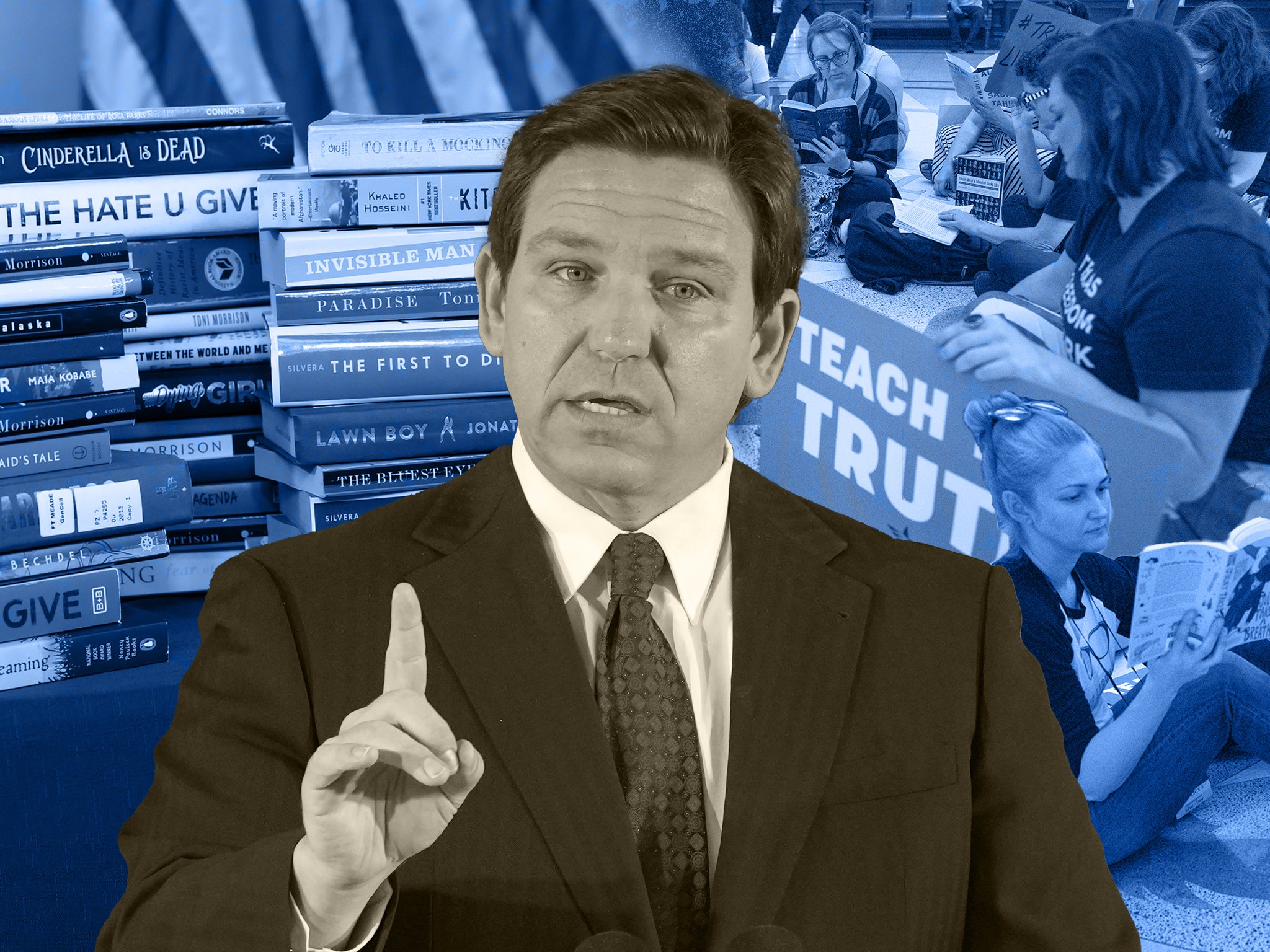We must protect young minds from needless censorship
Editorial: Libraries and classrooms are actively being stripped of the materials that help educate and expand the minds of our children and general public

While book banning is notably the most widespread form of censorship in the country and has been for centuries, it has significantly ramped up over the last few years.
Advocacy groups, some parents, and many politicians see certain content as harmful to the next generation of readers – despite that very content being integral for helping foster ideas and analysis, as well as prompting questions.
As you read this, libraries and classrooms are actively being stripped of the materials that help educate and expand the minds of our children and general public.
A new report from PEN America, launched this week, noted that from July to December 2022, there were 1,477 cases of books being removed from the shelves. That number was up from 1,149 during the previous six months. The organization, which has been tracking book bans since July 2021, has seen more than 4,000 instances of book removals in that time.
Arizona, Iowa, Texas, Missouri, Oklahoma, and Florida are just some of the states where bills have been proposed or passed to help restrict the access children and others have to certain books.
The State Legislature in Florida passed a law making it so a certified media specialist must evaluate all books available in classrooms and libraries. This law means that books by the likes of Toni Morrison, James Patterson and Jodi Picoult have all been banned; notably, many of these books center on gender identity and race.
The law has also stripped some classrooms of all their non-curriculum reading materials. Florida Governor Ron DeSantis has defended his ban by making the dubious claim that “pornographic and inappropriate materials that have been snuck into our classrooms and libraries to sexualize our students violate our state education standards.”
In Tennessee, the “Age Appropriate Materials Act” mandates that all schools have to catalogue every single book in their classroom lest they include any inappropriate content. This has prompted some teachers and librarians to go as far as hiding their libraries to protect their materials from scrutiny and avoid criminal prosecution.
Texas, which leads the country as the state with the most book bans per PEN America’s data, has been a hot bed for book ban litigation. Earlier this month, a federal judge in the state ruled that books that had been removed from public libraries by Llano County officials were to be put back on the shelves.
The books in question had been removed because their content pertained to race and the LGBT+ community. They were only put back after residents in the county sued officials for having their First and 14th Amendment rights violated.
As books (and the librarians who govern many of them) continue to face challenges across the US, The Independent is honoring the American Library Association’s National Library Week (23 April to 29 April) by bringing you a week dedicated to shedding light on these bans and their impact.
Reporter Clemence Michallon spoke to authors John Green, whose novel Looking for Alaska has found itself on many a list of banned books, Maia Kobabe, who wrote another contested work titled Gender Queer, Ibram X Kendi, who co-authored the challenged book titled Stamped: Racism, Antiracism, and You, and more about the effect these bans have had.
Richard Hall and Julia Saqui visited the town of Granbury, Texas — the site of one of the most severe banning efforts of any school district in the country — to explore the ongoing impact on the community to ban LGBT+ books. Their episode of The Independent’s On the Ground series will be broadcast later this week.
Heading over to Louisiana, reporter Alex Woodward spoke to a librarian facing off against the elected officials and right-wing activists in her state who want to censor the library she helped build. In another exploration, Mr Woodward takes a look at the reaches of book banning and its specific implications on the US prison system.
We’ve also put together a list of some of the challenged books you should most certainly have on your radar as well as a round-up of ways our readers can get involved in the fight.
We’re confident you’ll find the reporting illuminating and, most importantly, that it will implore you to keep reading.






Join our commenting forum
Join thought-provoking conversations, follow other Independent readers and see their replies
0Comments